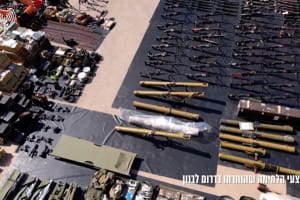Turkey closes Syrian border crossings amid violent riots against Syrian refugees, riots in Syria against Turkish soldiers
Turkey and Syria look to mend ties, finally ending Syrian Civil War of 2011

Turkey closed its main border crossings with Syria last week following a series of events that included riots against Syrians in Turkey, which then led to riots against Turkish troops in Syria.
The conflict began last Sunday when allegations spread that a Syrian refugee living in the Turkish town of Kayseri had sexually molested his 7-year-old cousin.
While the molester was arrested and the victim, her mother and her sister were put under state protection, mobs began attacking and setting fire to Syrian-owned cars, stores and homes in Kayseri.
Spurred by existing resentment against the millions of Syrian refugees who stayed in Turkey after fleeing the war in their home country over the last decade, anti-refugee riots broke out in several other cities the following day, including Hatay, Konya and Istanbul, according to The New York Times.
Social media reports suggested several Syrians were injured as a result of the riots, and the Turkish police arrested almost 500 people across the nation.
In turn, the reports of anti-Syrian attacks caused retaliatory riots in Syria, where large Turkish forces continue to support the last remaining groups of anti-Assad regime rebels in large swathes of the country’s northern rebel-held areas adjacent to the Syrian border.
Last Monday, after Turkish troops were confronted by protesters and rebel forces in several towns, a crowd attempted to storm its headquarters in the town of Afrin, where six people died in the clashes.
Turkey then declared the closure of several border crossings on Tuesday, while reinforcing some and withdrawing its troops from others.
In Syria, a key factor prompting the population in rebel-held areas to turn against their protectors is related rumors that Turkish President Recep Tayyip Erdoğan has been exploring ways to mend ties with Syrian leader Bashar al-Assad.
“For them, the idea of Ankara and Damascus reconciling may mean back to status quo, but it is not possible for them to go back to the status quo before the war,” Serhat Erkmen, a Turkish security analyst, told the NYT.
“When they hear things like peace negotiations, they feel that they will lose their future.”
Syria’s northwestern areas are the last remnant and refuge for numerous rebel groups that took part in the civil war against the Assad regime in Syria. After years of struggle, Syria won the war, with the help of Russian, Iranian and Hezbollah forces.
Last week, Erdoğan said a meeting with Assad was possible to help restore bilateral relations that were broken off in 2011, after Turkey began supporting rebel groups, many of which subscribed to various Islamist ideologies.
On Wednesday, Erdoğan and Russian President Vladimir Putin discussed the burgeoning dialogue between Ankara and Damascus on the sidelines of the Shanghai Cooperation Organization (SCO) in Astana, according to the Al-Monitor news outlet.
Together with Iran, Russia has been the main backer of the Syrian government and has pushed for Turkey to withdraw from Syrian areas. Turkey has been hesitant to vacate areas on its border, fearing Kurdish militant forces could fill the resulting power vacuum and threaten its security.
Erdoğan “stressed Turkey’s determination not to allow a ‘terroristan’ organization just beyond its borders,” while assuring Putin that Turkey “is ready to cooperate” in finding a solution to the Syrian war.
Erdoğan stressed "the importance of taking concrete steps to end the instabilities that create fertile ground for terrorist organizations, especially in the Syrian civil war... Turkey is ready to cooperate for a solution,” according to the Turkish readout of the meeting.

The All Israel News Staff is a team of journalists in Israel.
You might also like to read this:














